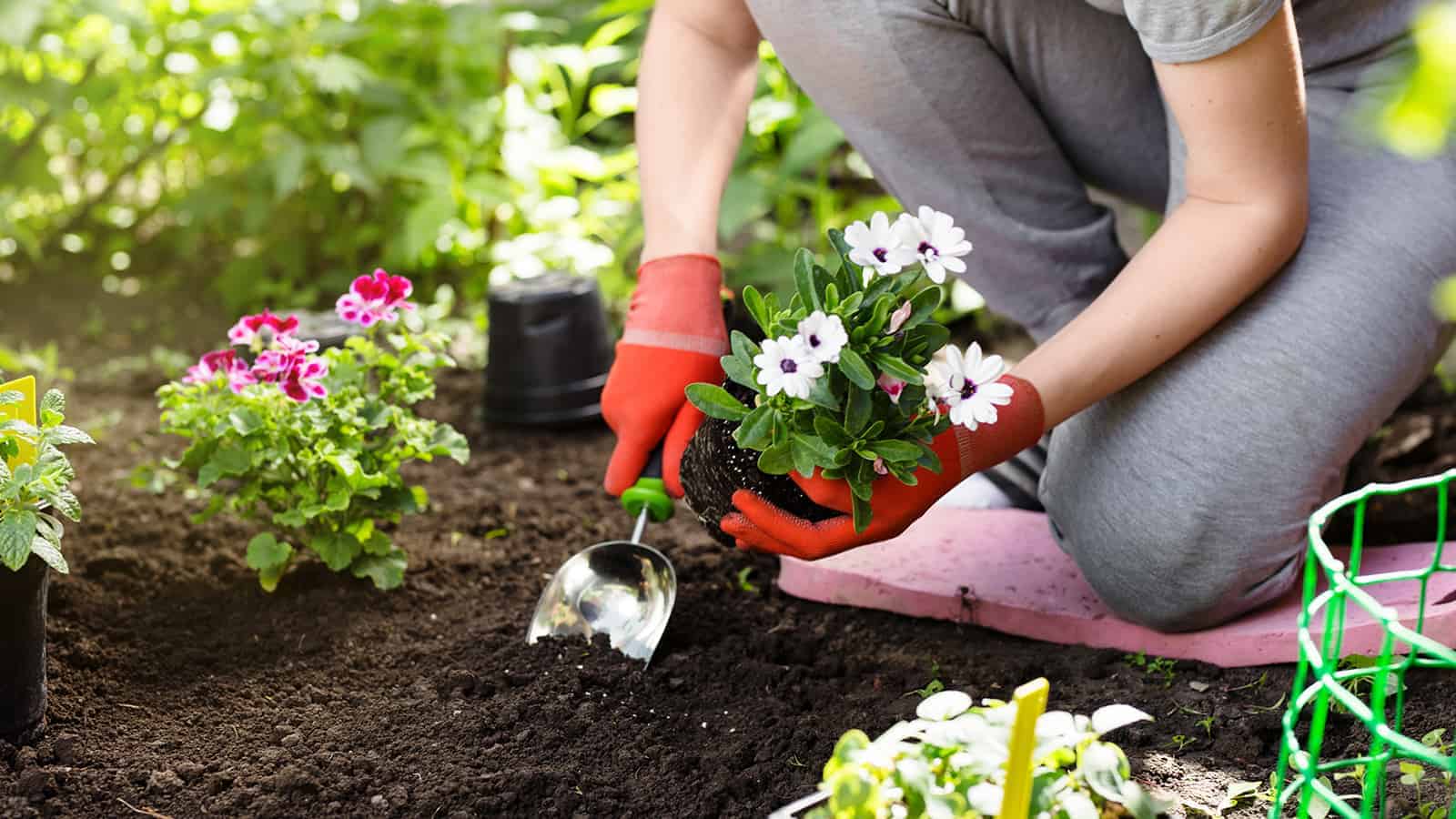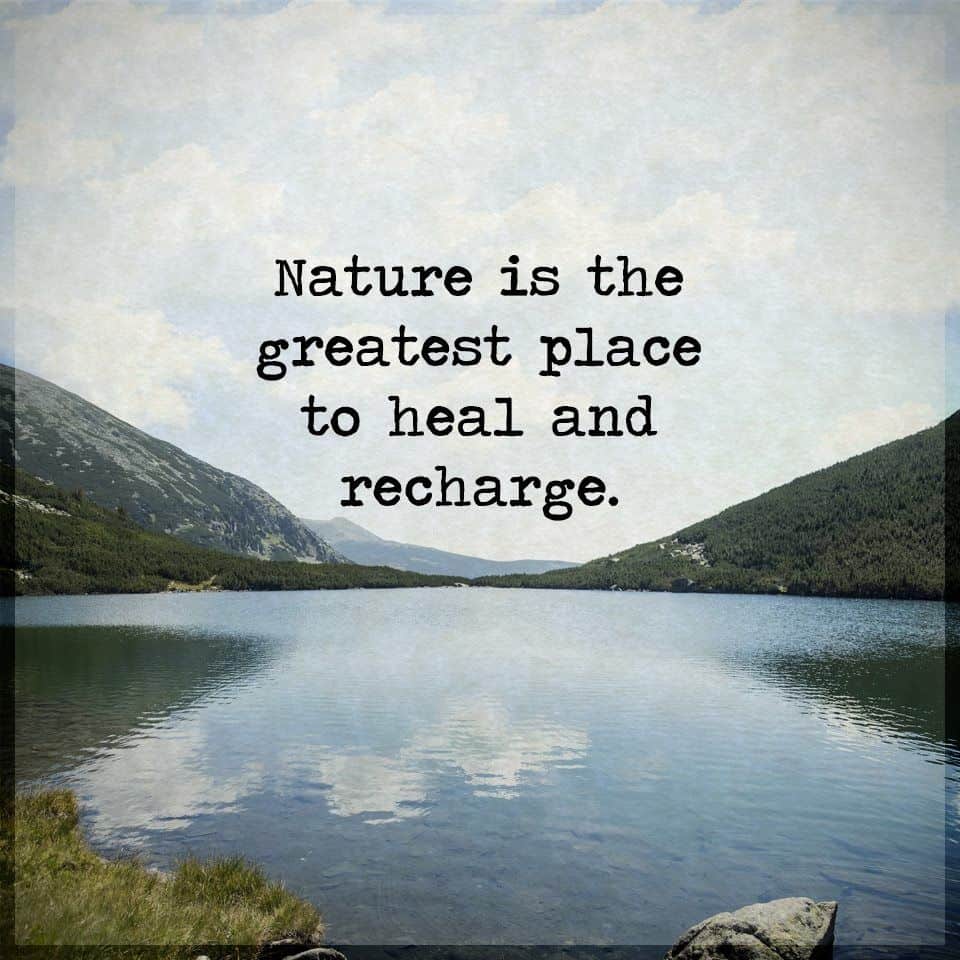Gardening is often considered a boring activity, but those who have had the privilege of giving it a try may have found that it is anything but. Countless people fall in love with gardening every day, and those that do are doing their minds and bodies a favor.
You see, gardening has many benefits that it can provide to you, so it’s a hobby that gives as much as it gets! Here are 7 ways gardening can boost your well being and improve your mental health.
1. It’s Exercise
Lots of people have the incorrect perception of gardening that it’s an easy, lazy task. Far from it! Gardening can be a real workout that burns plenty of calories while strengthening specific muscles. Try it, and you’ll see how tired you can be after a morning spent tending to your flora.
Better yet, gardening provides all sorts of benefits that you can find in more conventional kinds of exercise. This includes:
· Muscle Usage
When you cut grass, rake the ground, bend down to plant seeds, carry heavy watering cans, shovel or dig, and more, what you’re doing is exercising your muscles. In fact, most yard work or gardening uses all the major muscle groups that the body has!
· Weight Management or Loss
Working in a garden is a huge kind of physical exertion. Studies suggest that this exertion has positive effects on weight, helping to offset obesity, reduce the risk of weight gain due to age, and help with general weight loss efforts and desires.
· Better Sleep
When you garden, you’re likely to tire yourself out enough that sleep comes easier later. You may be able to fall asleep more quickly and will also likely enjoy longer and deeper sleep, just like with more common forms of exercise!
2. It Teaches Valuable Lessons
Gardening is a unique activity. It involves doing the best you can to nourish what you grow and hoping that the world and soil return the favor. There’s a lot you can learn from this process beyond just the standard gardening knowledge, and all those lessons can work together to boost your positive thinking and make you a brighter person. Here are some examples:
· Acceptance
You are not truly in control of your garden. You can influence many of its aspects, but Mother Nature wins the day at the end of the day. Gardening means coming to terms with the fact that your carefully planted flora can become damaged by passersby, animals, the weather… anything, really! And at the end of the day, however, your plants turn out, it’s okay, and you can love them regardless!
· Growth Mindsets
A fixed mindset refers to the act of being “fixed” in your desires, knowledge, and perspectives, meaning a wrench in those plans can derail you. A growth mindset, on the other hand, involves constant growing, learning, and adapting. It means taking things in stride and seeing how to build on them. Gardening is a great way to do this. You learn from your “mistakes” and begin to understand the subtleties in the weather and soil that dictate your plants’ health. Most of all, you learn to find uses for all your plants, no matter how they turn out!
· No Perfectionism
As aforementioned, you don’t have full control over the way your garden turns out. The concept of a perfect garden doesn’t exist. Some plants are going to have imperfections, and some leaves are going to get a little damaged. That’s just how it is, and that’s how life is! Gardening is a great way to teach yourself to let go of the desire for endless perfection, as it’s impossible to achieve that in this practice. Positive thinking is all you have.
3. It Can Help Ward Off Disease
Gardening typically means you’ll be out in the sun, and much like the plants you tend, you’ll be getting a rather interesting benefit by absorbing sunlight. The name of this benefit is simple: vitamin D!
Just spending 30 minutes in the sun can lead to your body’s production of 8,000 to 50,000 IU of vitamin D, according to studies, with the large variation depending on the amount of clothing cover you have and how much melanin is in your skin naturally.
But how does this help you with the disease? Vitamin D is a crucial part of a huge number of bodily functions, including strengthening the immune system and maintaining bone health. Further research had indicated the many disease possibilities that vitamin D impacts positively by reducing their development risk:
- Bladder Cancer
- Breast Cancer
- Colorectal Cancer
- Dementia
- Metabolic Syndrome
- Multiple Sclerosis
- Non-Hodgkin’s Lymphoma
- Prediabetes Condition
- Prostate Cancer
- Psoriasis Flares
- Stroke
- Type 2 Diabetes
Of course, overexposure to the sun can increase your risk of skin cancer, so be sure to soak up those rays in moderation!
4. Eating Better Unintentionally
Growing a garden means planting vegetables, fruits, or other similar edible plants that you’ll likely want to find a way to use. This will subconsciously encourage you to cook more and will ensure that you’re using fresh ingredients without toxic pesticides or additives.
Nothing you grow in a garden is processed or pre-packaged. They’re not stuffed with preservatives and hidden calories. Instead, they’re simple whole foods that you’ll want to add to dishes. Even if you still don’t want to cook, using what you’ve planted in snacks or quick bits means you’re eating healthier options than common snack foods.
5. It’s Therapeutic
If you enjoy gardening, you’re likely to find it pretty therapeutic. The natural process of growing plants and caring for them can work wonders for the brain. Here are some common ways that gardening can be immensely therapeutic and beneficial:
· Anger Management
People often underestimate the amount of effort, sweat, and physicality that goes into gardening. Performing tasks in a garden, especially involving pruning, digging, or doing other similar activities, will help you work off tension. You’ll get to take your anger out on the soil and do no harm to anyone else!
· Stress Relief
When you’re stressed out, going out to the garden can help to calm you down. You’ll work off that excess tension and nervous energy and will benefit from the release of positive hormones called endorphins. This can help calm you down and relax you, even in the most stressful times.
· Addiction Recovery
It’s not unusual for horticultural therapy to be used in the process of addiction recovery. Studies have shown that gardening is a better rehabilitative tool than art for addiction recovery, often leading to more positive feelings and higher self-satisfaction levels.
· Consciousness Alteration
This is a bit of a spiritual thing, but if you’re into that, this is a great benefit you can get for your positive thinking and mental state. If you’ve ever gardened before, you know that the specific kind of focus it needs is one that puts you in a new state of mind. You’re basically “in the zone,” so to speak, and it changes the way you feel and how you experience the world in that time. For many people, this is incredibly therapeutic and helps them stay grounded and mindful in the moment.
6. It Forces Self-Care
If you often struggle with self-care, gardening may be able to help you in surprising ways. You see, the fact is that the act of gardening requires that you take care of yourself – no ifs, and, or buts about it.
If you don’t practice certain acts of caution and self-care, you can’t garden properly at all. For health and safety – often of both you and those around you – certain steps must be taken. For example, when you garden, you must:
- Dress appropriately in closed clothing and safety fear, sometimes even with goggles, to protect yourself from the elements, tools, and dirt
- Listen carefully to what your body is telling you so you can avoid injury.
- Choose the type of fertilizer to use in your garden. Be aware of directions on chemicals, fertilizers, pesticides, weed killers, and other similar products that you use for your plants in the garden.
- Drink enough water to avoid dehydration from the exertion and the sun
- Ensure that you are properly using and storing sharp tools and toxic objects, especially if you have kids or pets roaming around
- Use sunscreen, bug repellant, or similar products to avoid discomfort or difficulties later.
- Ensure that your tetanus shots are up to date because tetanus can be found in soil
But what does this have to do with mental health? Well, for those who don’t practice self-care, having no choice but to do so for a hobby can help them get into the habit of taking care of themselves. So if you struggle with treating yourself kindly, gardening can help you get used to doing so, eventually allowing you to practice self-care unprompted outside of the garden.
7. It Promotes Connection
Gardening can be an extraordinary activity because it helps you foster connections with many different life facets. For whatever reason, this simple hobby has a way of bringing you closer to many things at once. This sense of being connected is great for your mental health, as it can make you feel a sense of purpose or as if you are no alone – which you aren’t! Here are some ways that gardening promotes connection and feelings of togetherness:
- You can connect with the food that you grow and the seeds that you sow, and you may even feel more connected with nature and the earth
- You can connect more with the world around you, as gardening requires that you pay attention to factors like weather, temperature, and sunlight
- You’ll connect with your nurturing side and may even feel like a bit of a parent to the plants that you grow
- You can connect with others who enjoy gardening, and the connection can be formed quickly due to the novelty of the hobby and the inherent way it touches people
- You can join community or family gardens to work on something collaborative with others who have found joy and peace in gardening, often leading to better personal wellbeing, according to studies
- You’ll connect with people from all walks of life and different backgrounds and cultures, thus expanding your horizons.
Final Thoughts On How Gardening Can Boost Your Well-Being And Improve Your Mental Health
Thinking of starting a garden? Do your research and start small! You’ll learn as you go and pick up all sorts of benefits to your mental health and wellbeing along the way!

















 Community
Community

